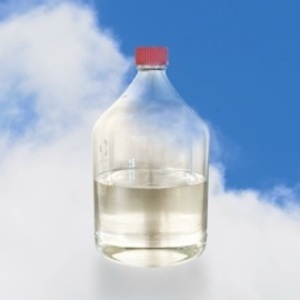Twelve, LanzaTech partner to create ethanol from CO2

PHOTO: Business Wire
March 3, 2022
BY Twelve
Carbon transformation company Twelve and biotechnology company LanzaTech have transformed CO2 emissions into ethanol as a part of an ongoing research and development partnership.
The two companies combined technology capabilities to create ethanol, which is a common alcohol used as fuel, and an ingredient in hand sanitizers, personal care, and household cleaning products. Ethanol is typically produced using biological processes or as a petrochemical, through ethylene hydration, using fossil fuels. It's also often produced using corn and other crop feedstocks, but this approach is dependent on crops that otherwise could be used to grow food or waste feedstocks. Twelve and LanzaTech are eliminating fossil fuels from ethanol production by converting CO2 to CO through Twelve’s carbon transformation technology, and subsequently using LanzaTech’s small continuous stirred tank reactor (CSTR) to convert CO to ethanol. This approach is highly scalable and could ultimately produce ethanol at an industrial scale, while simultaneously eliminating CO2 emissions.
Advertisement
“Collaboration is critical to our work in a rapidly evolving technology space. As we use carbon transformation to address long-standing climate challenges, developing pathways to ethanol and other critical products are key to a fossil free future,” said Twelve Co-Founder and CSO Etosha Cave.
“Our partnership with Twelve provides us with the feedstock needed to create critical resources like ethanol without adding CO2 to the atmosphere. Our process aims to rebalance the overabundance of carbon in our environment and instead reuse it for meaningful applications,” said LanzaTech CEO Jennifer Holmgren.
Advertisement
In Fall 2021, Twelve and LanzaTech also announced plans to develop polypropylene from CO2 with a grant from Impact Squared. This work will see Twelve converting CO2 to CO, which will in turn be converted by LanzaTech’s proprietary microbe to isopropyl alcohol (IPA). Finally, TotalEnergies, based on its alcohols dehydration knowhow (AtolTM), will dehydrate it into propylene which will be polymerized into polypropylene with the same technical characteristics as its fossil counterparts. Polypropylene is a major polymer used in key applications, including medical devices like syringes and IV bags, automotive, furniture, textiles, and other durable products.
Related Stories
The Michigan Advanced Biofuels Coalition and Green Marine are partnering to accelerating adoption of sustainable biofuels to improve air quality and reduce GHG emissions in Michigan and across the Great Lakes and St. Lawrence Seaway.
The USDA reduced its outlook for 2024-’25 soybean oil use in biofuel production in its latest World Agricultural Supply and Demand Estimates report, released April 10. The outlook for soybean oil pricing was revised up.
EIA reduces production forecasts for biobased diesel, increases forecast for other fuels, including SAF
The U.S. Energy Information Administration reduced its 2025 forecasts for renewable diesel and biodiesel in its latest Short-Term Energy Outlook, released April 10. The outlook for “other biofuel” production, which includes SAF, was raised.
FutureFuel Corp. on March 26 announced the restart of its 59 MMgy biodiesel plant in Batesville, Arkansas. The company’s annual report, released April 4, indicates biodiesel production was down 24% last year when compared to 2023.
Neste has started producing SAF at its renewable products refinery in Rotterdam. The refinery has been modified to enable Neste to produce up to 500,000 tons of SAF per year. Neste’s global SAF production capacity is now 1.5 million tons.
Upcoming Events










